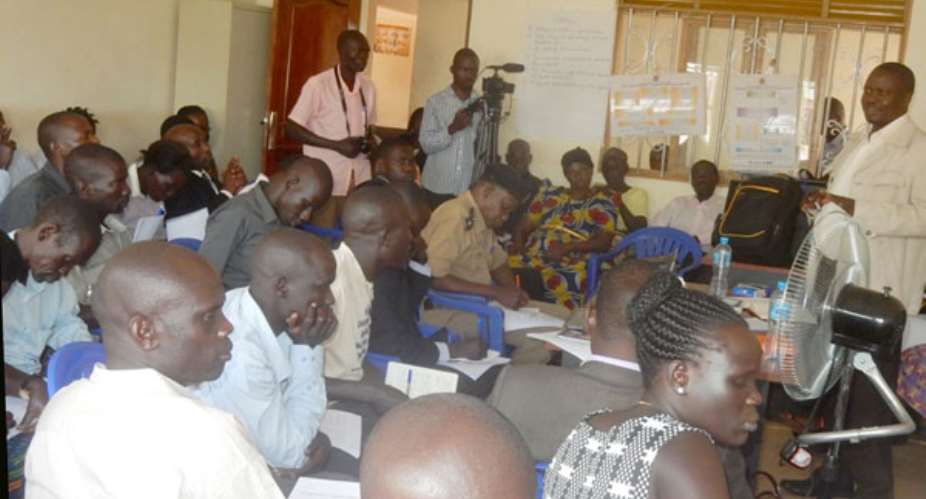The West African Examinations Council has released the results of the 2017 Basic Education Certificate Examination (BECE), paving the way for the implementation of the New Patriotic Party government's flagship Free Senior High School Education policy, barely one month from now.
It is not known how many students would benefit from the programme at its inception. The full results of the BECE was not known at the time of going to press. What is not in doubt, is that parents and guardians are eagerly looking forward to the new policy bailing them out of the economic difficulties facing Ghanaians generally. By the introduction of the new policy, many bright but needy students would not be caught out of the education safety net.
According to a publication in state-run Daily Graphic, a new grading system -Stanine Grading- from Grade One to Nine – was used. The council said the new system means that there are no failures.
It is not known whether this means that all the 468,000 candidates who sat for the exam are classified as successful for the implementation of the Fee Free policy. Whatever it is, the concept is likely to throw up more candidates for second cycle education than normal.
This is going to challenge the system harder than ever. And that is why all stakeholders must be involved wholeheartedly, for the new policy to succeed. That is one reason why The Chronicle is unhappy with the so-called Licensing Policy being introduced to qualify teachers to teach.
On August 15, Rev. Jonathan Bettey, Public Relations Officer of the Ghana Education Service (GES), confirmed a National Teaching Council initiative to compel all graduates of the all colleges of education to be licensed as professionals. The first examination for this license policy is scheduled to take place next month.
“Teachers who fail the examination will not be allowed to teach at a certain level. To be seen as a professional, you will have to pass the licensing exam,” Rev. Bettey affirmed. But this policy has been roundly condemned by the two largest teaching bodies – the Ghana National Association of Teachers (GNAT) and the National Graduate Association of Teachers (NAGRAT).
NAGRAT President Christian Addae Opoku told newsmen that it would make no sense for the GES Colleges of Education to produce professionals after graduation, only for the same graduates to write another exam.
The Chronicle is of the opinion that the new policy could be shelved until the Fee Free SHS has been in operation for some time. After the success rate of the new programme has been assessed, it would then be prudent to introduce the new policy.
We believe the GES and all stake-holders in education would need industrial peace to see to the successful implementation of the President's flagship programme.
Already, red flags are flying in the tertiary education institutes, following the decision by the members of the University Teachers Association's threat to lay down their tools over the impasse at the University of Education, Winneba.
We are unable to link quality teaching to the licensing of teachers. There are myriads of problems in the classrooms. They include large class sizes, the failure to pay newly-appointed teachers on time, poor infrastructure and many others. It is our conviction that finding solutions to some of these problems could impact more positively on the quality of education, than licensing teachers. In any case, we do not need any further industrial action on the education front.
Licensing teachers is the least of the problems in the classrooms.





 We’re disappointed over gov’t’s lacklustre attitude to negotiations of our condi...
We’re disappointed over gov’t’s lacklustre attitude to negotiations of our condi...
 No more Buffer Stock as Mahama promises to decentralise SHS food supply
No more Buffer Stock as Mahama promises to decentralise SHS food supply
 NSS urges President Akufo-Addo to sign National Service Bill into law
NSS urges President Akufo-Addo to sign National Service Bill into law
 You're lying, your 7-11pm dumsor attributed to overloaded transformers is false ...
You're lying, your 7-11pm dumsor attributed to overloaded transformers is false ...
 Consult Council of State on anti-gay bill – Mahama advises Akufo-Addo
Consult Council of State on anti-gay bill – Mahama advises Akufo-Addo
 Transport Ministry has no power to determine fares – COPEC
Transport Ministry has no power to determine fares – COPEC
 Brace yourselves for more economic hardship – Prof Adei to Ghanaians
Brace yourselves for more economic hardship – Prof Adei to Ghanaians
 Any government depending on IMF is likely to fail – Grand Coalition
Any government depending on IMF is likely to fail – Grand Coalition
 Ghana risks losing premium cocoa position due to galamsey – COCOBOD laments
Ghana risks losing premium cocoa position due to galamsey – COCOBOD laments
 Akufo-Addo launches NSS policy document to tackle under-utilisation of service p...
Akufo-Addo launches NSS policy document to tackle under-utilisation of service p...
